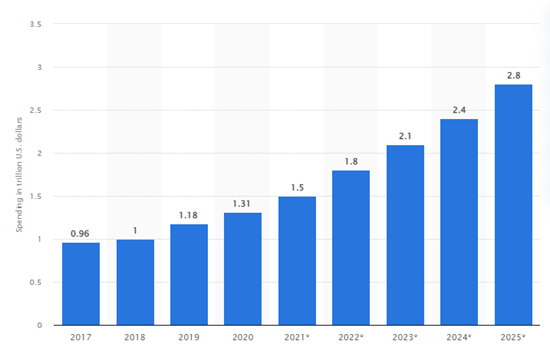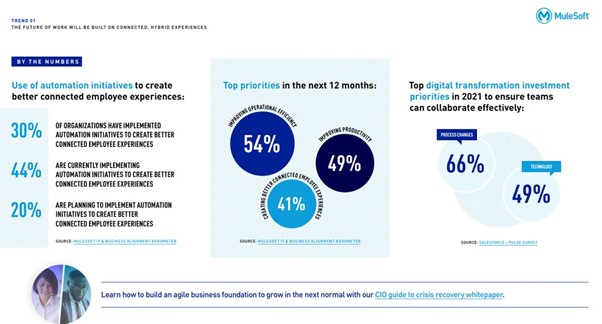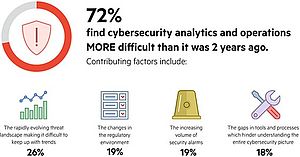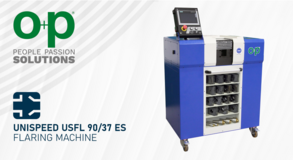Futurism Technologies. The global digital transformation market is poised to reach a staggering $2.8 trillion by the end of 2025. Businesses across the globe are fast catching up with the digital bandwagon embracing coming-of-age technologies to accelerate their digital journey.
Automation can drive productivity, accelerate time-to-market and reimagine customer and employee experiences as we see them today in today’s digital-first and hybrid work environment. According to Gartner, automation is a business-driven and disciplined approach that enterprises can leverage to rapidly identify and automate various mission-critical business processes utilizing next-gen technologies and concepts like machine learning and artificial intelligence (AI).
How Automation Unlocks True Digital Value for Businesses?
According to a Salesforce report, more than 95% of IT managers and experts believe that process automation is the key to successful digital transformation. Without automation, businesses are on the verge of becoming obsolete and irrelevant in today’s digital-first era.
Automation is turning out to be a driving force for modern digital enterprises. It is helping to digitize routine processes, streamline operations/workflows, cut unplanned outages and costs, lessen MTTR and create a more productive workforce, ultimately contributing to the bottom line.
1. Improved Productivity and Efficiency
Intelligent process automation reduces errors and eradicates routine and manual tasks that are otherwise performed manually. Automation paves way for error-free operations. Workflow automation on the other hand enables employees to focus more on challenging and creative tasks that require greater human touch and interference.
Further, integrating databases and systems reduces the time-consuming and daunting manual data entry work. According to McKinsey, organizations reported a 35% increase in efficiency after automating routine data entry operations.
2. Improved Customer Experience
Automation prevents customer inconvenience and frustration by ensuring that they access information quickly and easily. In fact, automation is the key to driving customer satisfaction levels for more than 60% of companies worldwide.
Enterprises have been using automation to analyze repetitive customer concerns/issues, such as answering frequently asked questions or taking orders via phone through automated bots or virtual assistants that are powered by AI and machine learning technologies. Automation helps to offer personalized customer experiences, boost customer satisfaction levels and reduce response delays.
3. Reduced Costs
Automating routine processes such as data entry, document management, approval workflows, and financial processes helps to save both money and time. Further, automation minimizes production and inventory output times. It reduces unplanned downtime, eliminates redundant costs, and curbs operational expenses.
Most importantly, automation helps to bring down business costs, since it lets you remotely manage disparate systems from a centralized hub saving you money and resources.
4. Improved Cybersecurity
Automating security operations and processes helps to protect hybrid as well as multi-cloud investments by deploying a new set of governance, controls, configurations, and automation across data and users spread across diverse workloads and environments. Security automation brings in improved visibility and context thus, helping IT and security admins to streamline compliances, as they can monitor usage patterns and identify threats/vulnerabilities quickly (real-time).
Examples of Successful Digital Transformation powered by Automation
1. Porsche puts Customer Experience (CX) at the heart of everything they do with automation
Porsche positions its customers first. The automobile leader invested in cutting-edge AI and automation technologies to understand their customers and their needs. They have adopted a digital approach wherein they collect and process customer information into a powerful AI-powered CRM system and document every single customer interaction spanning multiple touch points. Now, this data helps in real-time segmentation as well as in predictive intelligence. Result – they contact only those customers that are actually interested to purchase a Porsche leading to a massive boost in sales conversion.
2. UPS saves huge with Automation
The international shipping and supply chain management giant used automation to deploy real-time package tracking and accelerate its delivery process. The company built a fleet management tool powered by machine learning algorithms. Result - reduced fuel cost and carbon footprint and increased driver productivity. The company now saves up to $300M-400M yearly.
Takeaway
In today’s digital-first era, automation is at the heart of digital transformation. Thus, aligning automation with your digital transformation goals can help your enterprise gain that competitive edge and scale up efficiently. Futurism provides digital automation solutions that are tied directly to business outputs. Moreover, their iterative project approach for a ‘self-funding’ digital transformation journey paves way for improved ROI and operational efficiency. Run automation solutions and tools on a few projects and processes before moving on to an enterprise-wide approach.
Futurism offers a full spectrum of Digital Transformation (DX) and Business Intelligence Solutions helping businesses leverage new-age technologies like Robotic Process Automation (RPA), Artificial Intelligence (AI), Machine Learning (ML), 5G, IoT, Data Science/Big Data, Cybersecurity, Blockchain, Mobility, Product Engineering, Cloud, and more.

























